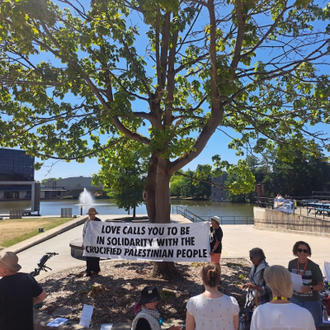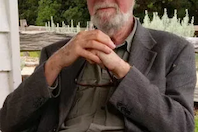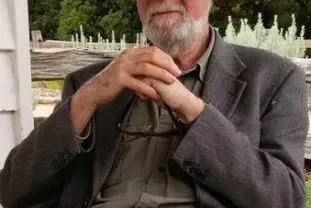Ian Linden: Naming the horrors in Gaza

Demonstration at CoE Synod
Protests from authoritative sources at the horror in Gaza are growing. A number of professors in genocide and holocaust studies, a handful Jewish, are now condemning as genocide the conduct of Netanyahu's government and the Israeli Defense Forces (IDF). There has been reluctance to do so. The majority have not come to this conclusion.
The memory of the Holocaust plays a unique role in Jewish and Western consciousness. It became a constitutive element of Zionism, a rationale for the State of Israel's policies towards Palestinians. There has been disbelief that a State, treated by the West as its outpost in the Middle East, could countenance and undertake ethnic cleansing using methods accused of being genocidal.
The legal bar for genocide in international law, beyond war crimes and crimes against humanity, is very high: clear intention, no other plausible explanation for actions whose sole purpose is Genocide.
The 15 July New York Times, carries an essay by Dr Omer Bartov, an Israeli-American Professor of Holocaust Studies at Brown University, Rhode Island. Professor Bartov was a Company commander in the 1973 Yom Kippur war. Brown University is amongst the top ten, Ivy League, universities in the USA. He describes how he came to the "inescapable conclusion" that "Israel is committing genocide against the Palestinians". He cannot be dismissed off-hand.
Bartov expresses concern for the future of Israel and the Palestinians and fears wider consequences of what is now happening in Gaza and the West Bank for the "culture of Holocaust commemoration and the politics of memory, education, and scholarship". He emphasises the importance of Holocaust museums as "models for the representations of other genocides". This reminded me of moving encounters between Holocaust survivors and survivors of the Rwandan genocide in the National Holocaust Centre and Museum, Beth Shalom, near Laxton in Nottinghamshire, a centre founded by two Christians. Bartov fears that the Holocaust, because of manipulation by the Jewish State, will lose its universal importance for humanity and become an ethnically "specific pre-occupation". Such worries do not seem out of place.
Not just Putin's war in Ukraine but Netanyahu's destruction and killing in Gaza, their spurious explanations, are normalizing the abandonment by States of moral restraints in war and the weakening of respect for international law. Attacks on the UN, the International Criminal Court (ICC) and the sanctioning of their officials, are authoritarian tactics.
The UK is not immune to the zeitgeist. The recent proscription of Palestine Action under the 2000 Terrorism Act raised eyebrows as well as questions. The legality of proscription is determined by judges. No jury who might, as in past cases, acquit for criminal damage needed. No national consensus on the matter. And protest against the proscription is de facto criminalized with many arrests, with implications for any organisations whose members take to the streets or undertake direct action for a cause.
Severe damage to property meant to " influence government" or "intimidate", falls within the expansive scope of the Act designed to protect national security. Palestine Action activists allegedly used a converted fire-extinguisher to spray red paint onto the turbines of two Voyager refueling aircraft at an estimated cost of £7 million. A judge decided this fell under the 2000 Act. But the obvious threat is the failure of security at RAF Brize Norton whose management should be called to account.
Israel's sophisticated propaganda and lobbying by AIPAC (American Israel Public Affairs Committee) have contributed to Western governments' failure to curb the IDF's conduct. And American policy positions knock on to allies such as the UK, Australia and to a lesser degree the EU. Germany for understandable reasons has been highly supportive of Israel though France, and UK Foreign Minister, David Lammy, have been willing to go beyond asserting Israel's right to self-defense to roundly condemning IDF's actions. As antisemitic incidents increase nationally, popular protest is closely monitored for hate speech. Whilst the language and tone of Western governments' support for Israel has shifted markedly, American military support notably has not been withdrawn.
Until recently Christian leaders' reactions to Israel's actions, with the exception of the World Council of Churches, were mainly limited to encouraging reconciliation whilst expressing compassion for the people of Gaza. Jon Sobrino, the Basque Jesuit theologian, in the 1980s called Salvadorians a 'crucified people'. On 22 July Cardinal Pierbattista Pizzaballa, the Latin Patriarch of Jerusalem, echoed his religious language: "He [Christ] is there crucified in the wounded, buried under the rubble and yet present in every act of mercy". After a tank shell hit Holy Family church in Gaza causing three deaths and several injuries, Pope Leo called again for an end to the "barbarity of this war".
The respected Catholic weekly, The Tablet of 5 July published a detailed article denouncing the IDF and Israeli government by peace negotiator and former priest, Oliver McTernan. But its title Israel's Existential Choice played into Israel's propaganda that it is fighting for its very existence. The Hamas massacre of 7 October was a barbarous response to repression but neither the belligerent nor less bellicose wings of Hamas represent, if the words have any meaning, an existential threat to Israel. The IDF, with its US military support, could and did reduce Gaza to rubble and successfully waged war on multiple fronts: in Lebanon, Yemen, Iran and Syria.
McTernan touched on the deliberate starvation of Palestinians trapped in Gaza 'while we argue over the niceties of whether or not it is right to use the word 'genocide'. Understandable frustration, but in international law States have to intervene to prevent Genocide. Hence President Bill Clinton's careful avoidance of the term during the Rwandan Genocide.
On 15 July at the General Synod in UK, Anglican Archbishop Hosam Naoum of Jerusalem described the US-Israeli Humanitarian Foundation's four feeding centres, open one hour a day, deathtraps for the hungry, as reminiscent of the Hunger Games movies. Hundreds of well-run UN distribution points around the besieged territory were banned by Israel. Gangs now steal food deliveries.
In December 2023, the South African government filed an 'Application of the Convention of the Prevention of Genocide' in the UN's Hague International Court of Justice (ICJ) against Israel - strongly supported by civil society groups. The International Criminal Court (ICC) later issued warrants for the arrest of Netanyahu, Yoav Gallant, Minister of Defense, and a Hamas Commander, Mohammad Deif. The UK says it would do so despite strident opposition from the USA which is not a member. And on 23 July, a Brussels court ordered the Flemish authorities to block components for Merkava tanks being shipped from Antwerp to Israel and banned further such exports - four NGOs filed the case.
Bloggers only have words at their disposal carrying at best the modest might of reason and emotion. Two lines taken from a South African poet, Umar Willis, come to mind. "Let the skies belong to the birds again. Not to the metal wings of death".
Naming the horror in Gaza raises several questions: of language, morality, justice and law. Notwithstanding, States appalled at further 'unacceptable' or 'intolerable' acts must urgently impose more effective sanctions on Israel. Hard-won restraints on the savagery of war, and much more, is at stake.
Professor Ian Linden is Visiting Professor at St Mary's University, Strawberry Hill, London. A past director of the Catholic Institute for International Relations, he was awarded a CMG for his work for human rights in 2000. He has also been an adviser on Europe and Justice and Peace issues to the Department of International Affairs of the Catholic Bishops Conference of England and Wales. Ian chairs a new charity for After-school schooling in Beirut for Syrian refugees and Lebanese kids in danger of dropping out partnering with CARITAS Lebanon and work on board of Las Casas Institute in Oxford with Richard Finn OP. His latest book was Global Catholicism published by Hurst in 2009.
LINK
Ian Linden: www.ianlinden.com/latest-blogs/


















